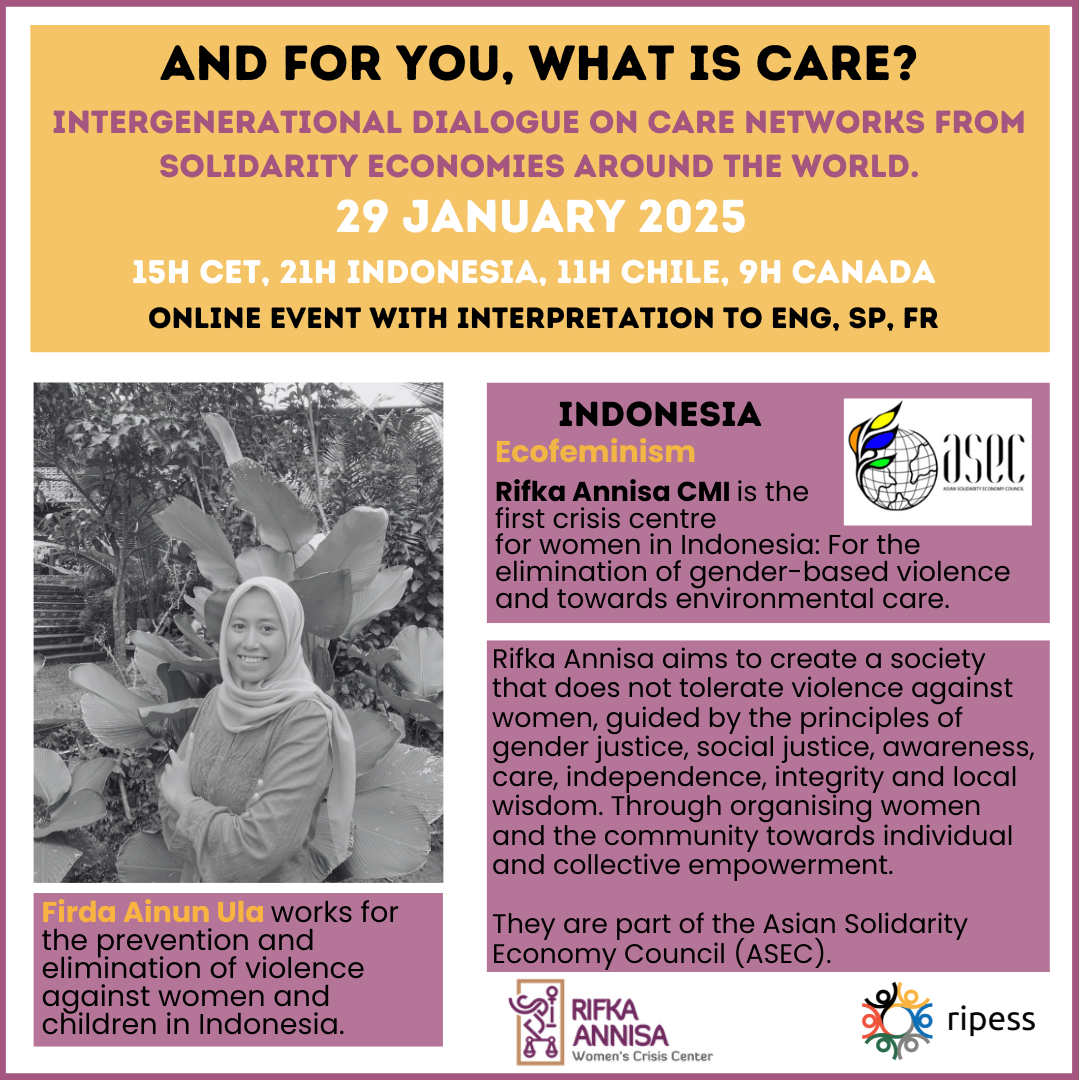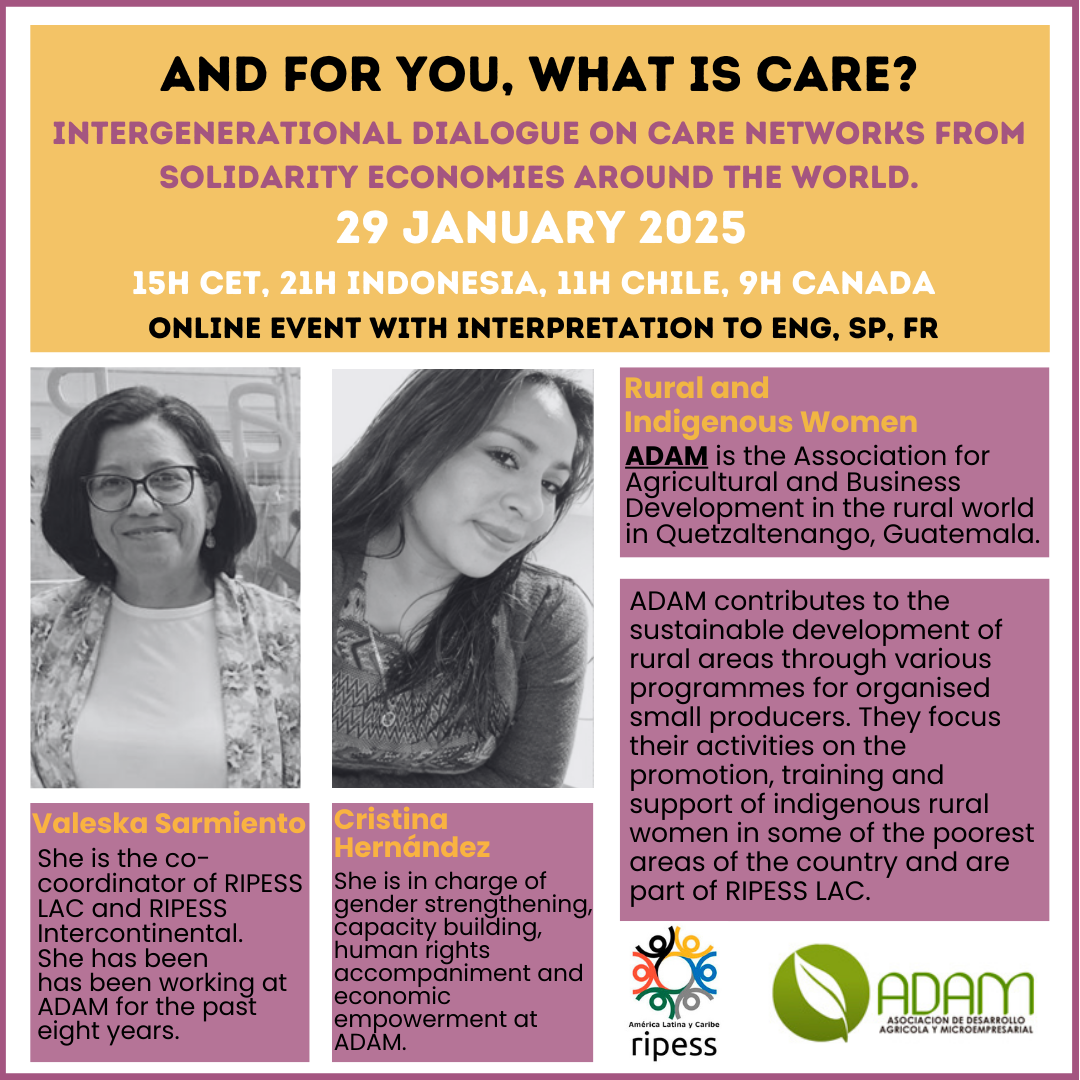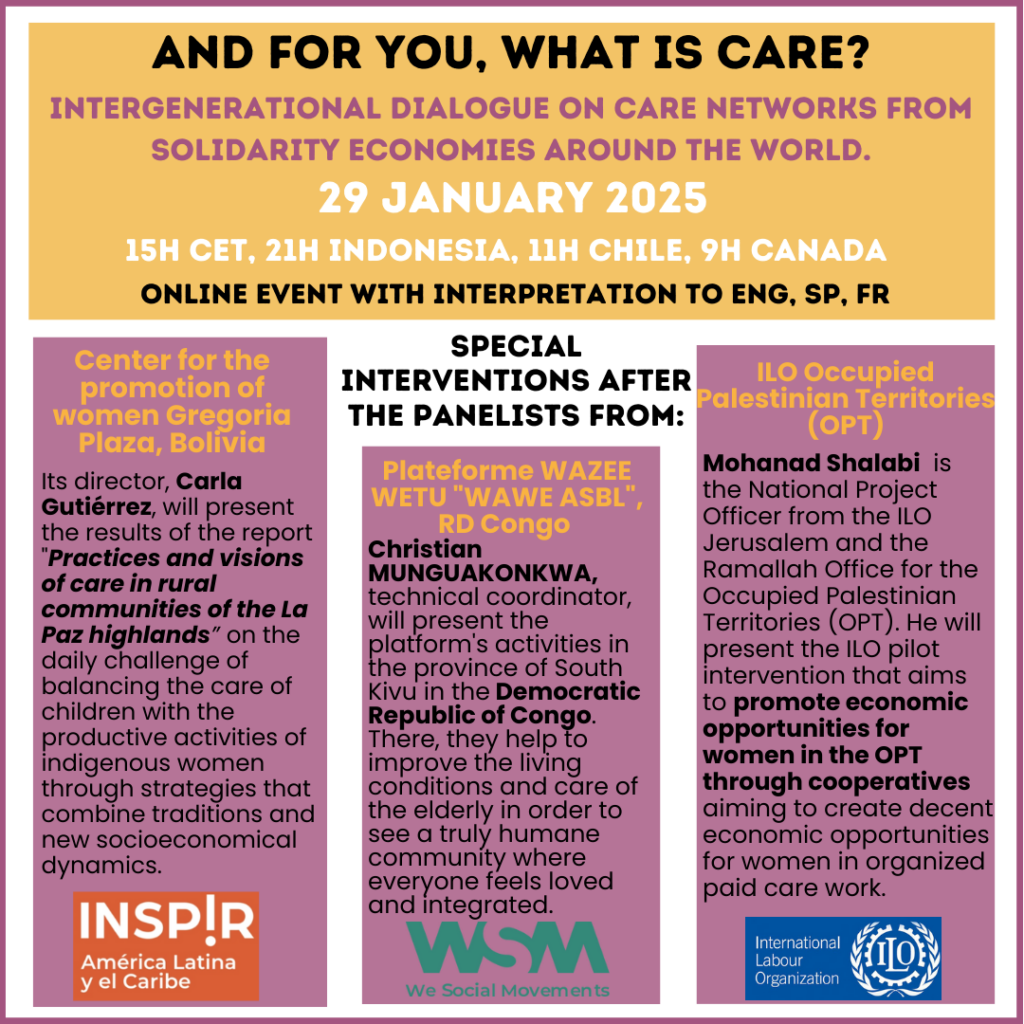This webinar will be held on 29 January at 15h CET (21h Indonesia, 11h Chile, 9h Canada) and requires pre-registration here.
The gender commission of RIPESS Intercontinental, which brings together women and gender non-conforming people from all RIPESS continental networks around the world, is organising this intergenerational dialogue on the weaving of care networks from solidarity economies together with RIPESS Europe.
Recognition of the importance of care and the related economy is growing globally, highlighting its connection to human rights. Goal 5.4 of the 2030 Agenda seeks to value unpaid care and domestic work through public services and social protection policies, promoting shared responsibility in the household. This webinar emphasises the rights of workers in the care economy, pointing out the precariousness of wages and working conditions, especially among marginalised groups such as women and racialised, indigenous and migrant communities. The Social and Solidarity Economy (SSE) model fosters participatory and democratic practices, adapted to local needs. It also addresses the intersection between care and territorial dynamics, highlighting the need for adequate services and the equitable distribution of time and space, to enhance the autonomy and rights of women and girls without forgetting the relationship between care and the environment, recognizing the work of diverse communities in territorial conservation.
In the framework of the European project You‘th Care, which aims to strengthen the active citizenship and engagement of the ‘next generation of Global Care takers’ by supporting young people in building a common strategy for a better future, this webinar will create a space for both learning and dialogue from the following care experiences brought by speakers from Indonesia, Guatemala and Catalonia:
- Firda Ainun is a young gender activist currently working to eliminate violence against women and children in Indonesia through preventive efforts. She is enthusiastic about empowerment work so that every human being can be free from violence, empowered and enabled. The organisation she works for, Rifka Annisa, is based in the city of Yogyakarta on the island of Java and is part of ASEC, the Asian Solidarity Economy Council.
- Valeska Sarmiento is the intercontinental co-coordinator of RIPESS, coordinator of RIPESS LAC and works for the Association for Agricultural and Business Development, ADAM in Quetzaltenango, Guatemala. The association’s main purpose is to contribute to the sustainable development of rural areas through various programmes aimed at the organised small producers’ sector in rural areas of Guatemala. In their latest projects, they focus their activities mainly on the promotion, training and support of indigenous rural women in some of the poorest areas of the country.
- Daniela Cabrera Salazar, carer and head of communication at Més que Cures, works at this association of women experts in care and community well-being, which is mainly made up of migrant women. It is an association located in the Poble Sec neighbourhood of Barcelona that maintains a vision of inclusion, seeking the dignity of service users and workers, making it possible for these carers, mostly women at risk of vulnerability, to carry out their work with dignity, guaranteeing their social and labour rights. Més que Cures is part of XES, and therefore, of Ripess Europe.



The presentations will be followed by the following interesting special interventions brought to us by our allies around the world:
- Mohanad Shalabi, is the National Project Officer from the ILO Jerusalem and the Ramallah Office for the Occupied Palestinian Territories (OPT), will present the ILO pilot intervention that aims to promote economic opportunities for women in the OPT through cooperatives aiming to create decent economic opportunities for women in organized paid care work.
- Christian MUNGUAKONKWA, the technical coordinator of the WAZEE WETU Platform ‘WAWE ASBL’, from the Democratic Republic of Congo, will present the platform’s activity in the province of South Kivu helping to improve the living conditions and care of the elderly. The goal? To see a truly humane community where everyone feels loved and integrated. The platform is part of INSP!R Africa, which is driven by our partner organisation We Social Movements (WSM).
- Carla Gutiérrez, Gregoria Apaza Women’s Promotion Centre. She will present the results of the report ‘Practices and visions of care in rural communities in the highlands of La Paz’. The centre belongs to the INSP!R Latin America Network, part of WSM.

The Social and Solidarity Economy (SSE) and care are a direct response to the patriarchal capitalist system that exploits bodies, time and territories for its own benefit. From a perspective of struggle and resistance, SSE places care at the centre as a political act of sustaining life in the face of commodification and extractivism. Mutual support networks and community practices not only challenge the logics of exploitation, but also build a horizon where care is a collective right, a tool for emancipation and a way to destroy the hierarchies imposed by capital and patriarchy.




